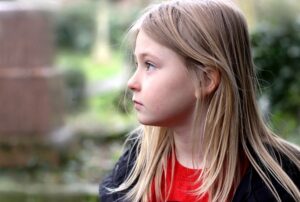Data released by the NSPCC reveals that over 100,000 children contacted Childline last year for help with mental health struggles.
 The confidential charity helpline delivered more than 105,000 counselling sessions on mental health and emotional wellbeing between 1st April 2022 and 31st March 2023 – over half of the total number of counselling sessions they provided that year (195,542).
The confidential charity helpline delivered more than 105,000 counselling sessions on mental health and emotional wellbeing between 1st April 2022 and 31st March 2023 – over half of the total number of counselling sessions they provided that year (195,542).
Almost a third of these specifically related to problems with stress and anxiety.
They reported that mental health and emotional wellbeing issues were the top reason for children to contact them for help.
Further, children contacting Childline about their mental health in the past year were most likely to raise one of these top 5 issues:
- Stress and anxiety – 31,143 counselling sessions
- Low mood and unhappiness – 14,253 counselling sessions
- Accessing support and services for mental health – 6,397 counselling sessions
- Depression – 6,389 counselling sessions
- Loneliness – 5,109 counselling sessions
Childline calls for early intervention mental health support
 In response, Childline has called on the government to commit to funding and delivering Mental Health Support teams for all schools and colleges in England in order to provide early help and support for all children that need it.
In response, Childline has called on the government to commit to funding and delivering Mental Health Support teams for all schools and colleges in England in order to provide early help and support for all children that need it.
Current targets aim for access to mental health support for up to 50% of school pupils by April 2025, but Childline says that this lacks the sense of urgency required.
They say that early intervention support can prevent children and young people from reaching crisis point as their mental health problems worsen.
The Director of Childline, Shaun Friel, said:
“Young people may struggle with a range of mental health issues throughout their childhood and adolescence. This can be a time of turbulence, and so it’s important that children feel supported and uplifted.
“Ensuring that young people have a network of support, whether that’s in school, with their peers, at home or through organisations such as Childline, helps young people take the first step to tackling these struggles. Childline is here for any child that may be struggling with their mental and emotional wellbeing.”
Childline advice for supporting children with mental health concerns
Childline has also provided some helpful tips and advice for adults supporting a young person’s mental health and wellbeing. These include:
- Let them know that you’re there for them and are on their side
- Be patient and try to remain calm and approachable, even if their behaviour upsets you
- Acknowledge that their feelings are valid and let them know that it’s okay for them to open and honest about their emotions
- Think of healthy ways you can cope together, like practising yoga, breathing exercises or mindfulness
 Childline recognises that it can sometimes be hard for parents to accept that their child may be struggling with mental health issues, but they say that its vital that young people feel supported, reassured and not judged by the adults in their lives.
Childline recognises that it can sometimes be hard for parents to accept that their child may be struggling with mental health issues, but they say that its vital that young people feel supported, reassured and not judged by the adults in their lives.
Adults who want more help and advice, or who are concerned about a young person’s mental health can contact the NSPCC Helpline. The NSPCC also provides a range of useful information pages on children’s mental health, including issues like depression and anxiety and self-harm.
Parents experiencing their own mental health struggles can also contact the charity for support.
Children and young people seeking mental health support can visit the Childline website for information and advice, or they can speak to a trained counsellor by calling freephone 0800 1111.
Mental health training and guidance
 First Response Training (FRT) is a leading national training provider delivering courses in subjects such as health and safety, first aid, fire safety, manual handling, food safety, mental health, health and social care, safeguarding and more.
First Response Training (FRT) is a leading national training provider delivering courses in subjects such as health and safety, first aid, fire safety, manual handling, food safety, mental health, health and social care, safeguarding and more.
They work with a large number of early years and childcare providers, as well as schools, colleges, and children’s services.
Their courses include Understanding Mental Health, Youth Mental Health First Aid, Anxiety Awareness, Self-Harm Awareness and Suicide Awareness.
A trainer from FRT says:
“Children have faced isolation, loneliness, academic upheaval, bereavement, money worries and other difficulties since the pandemic, and, on top of this, when they do come forward with concerns about their mental health they may have to wait a long time for the specialist support they need.
“It’s therefore vitally important that anyone who works closely with children and young people has an understanding of mental health, is able to spot the signs that someone may be struggling and can offer appropriate early help and support. Focused training can help with this.”
A brief summary of our mental health training can now be downloaded as an infographic.
You can also download our free Guide to Mental Health Training from our website.
For more information on the training that FRT can provide, please call them today on freephone 0800 310 2300 or send an e-mail to info@firstresponsetraining.com.
